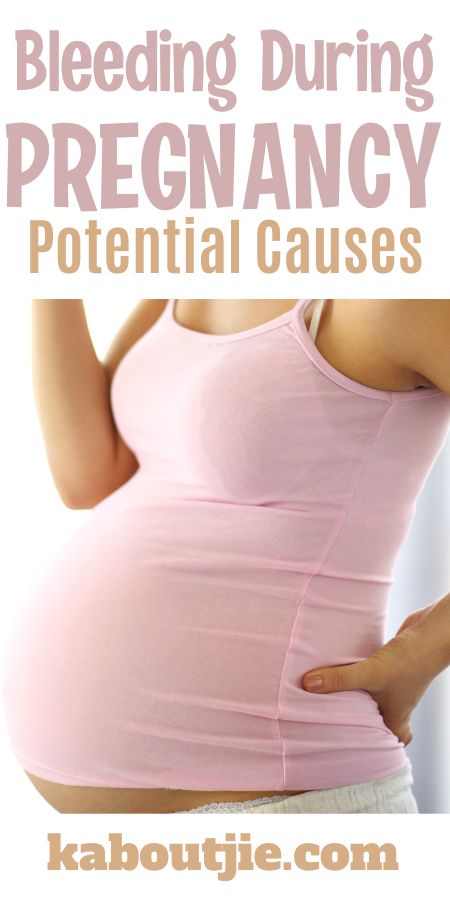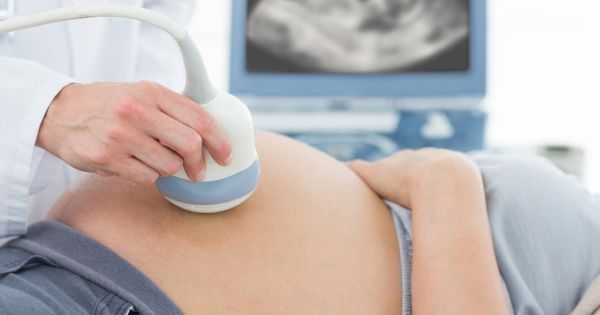Pregnancy is a remarkable journey filled with profound changes and extraordinary moments. It’s a time when a woman’s body undergoes remarkable transformations to nurture and bring forth new life. However, amidst the multitude of changes, there’s a lesser-known phenomenon that some pregnant women experience—the occurrence of bleeding that may resemble a menstrual period. Let’s delve deeper into this surprising occurrence and understand what it entails.

Understanding Period-Like Bleeding During Pregnancy
Many women are surprised to find that they experience bleeding during their pregnancy, reminiscent of their usual menstrual cycle. This bleeding can vary in intensity, ranging from light spotting to more substantial flow. While it’s easy to assume it’s a menstrual period, the reality is more complex.
Possible Causes Of Bleeding During Pregnancy
Bleeding during pregnancy can stem from various causes. While it’s a cause for concern, not all bleeding indicates a severe problem. Regardless of the cause, any episode of bleeding during pregnancy warrants immediate attention from a healthcare professional. It’s crucial to seek prompt medical advice and evaluation to ensure the well-being of both the mother and the baby. Never hesitate to contact your doctor or seek medical assistance if you experience bleeding during pregnancy. Here are some possible causes for bleeding while pregnant.
First Trimester Bleeding
Implantation Bleeding – Often mistaken for a period, implantation bleeding occurs when the embryo implants itself into the uterus. It usually happens around the time of an expected period and appears as light spotting.
Ectopic Pregnancy – An ectopic pregnancy occurs when the fertilised egg implants outside the uterus, usually in the fallopian tube. Bleeding accompanied by abdominal pain may indicate this condition, requiring immediate medical attention.
Miscarriage – Miscarriage, the loss of a pregnancy in the first 20 weeks, can lead to bleeding, accompanied by severe abdominal cramps and tissue passing.
Molar Pregnancy – A molar pregnancy, a rare pregnancy complication, involves abnormal growth of trophoblast cells, essential for developing the placenta. Two types exist: complete and partial molar pregnancies. In a complete molar pregnancy, placental tissue swells, forming cysts without a foetus. Partial molar pregnancies exhibit both normal and irregular tissue, often leading to an unviable foetus, typically miscarried early. This condition poses serious risks. Early treatment is crucial to manage the complexities associated with a molar pregnancy and prevent further complications.
Cervical Problems – Issues such as cervical infections or inflammation may lead to bleeding during early pregnancy. These problems can cause irritation and bleeding, often requiring medical attention.

Second And Third Trimester Bleeding
Placental Abruption – Placental abruption, a rare but serious pregnancy complication, involves the detachment of the placenta from the uterine wall before childbirth. The placenta, vital for nourishing the baby, separates partially or entirely, compromising the baby’s oxygen and nutrient intake. This separation leads to severe bleeding in the mother, posing risks to both the baby’s well-being and the mother’s health.
Placenta Previa – Placenta previa occurs when the placenta attaches lower in the uterus, partially covering the cervix. This positioning often causes bleeding during pregnancy or delivery. Sometimes, as the uterus and placenta adapt throughout pregnancy, the condition self-corrects. However, if it persists, a caesarean section (C-section) becomes necessary for the baby’s safe delivery, ensuring a reduced risk of complications associated with placental positioning.
Incompetent Cervix – Incompetent cervix, also known as cervical insufficiency, arises from weakened cervical tissue, contributing to premature births or the loss of a viable pregnancy. The cervix, typically closed and firm before pregnancy, undergoes changes during gestation, softening, shortening, and gradually opening in preparation for childbirth. However, in cases of an incompetent cervix, this dilation occurs prematurely, leading to early delivery.
Diagnosing and treating an incompetent cervix poses challenges. Early cervical dilation or a history of cervical insufficiency might necessitate intervention. Treatment options often involve a cervical cerclage, a procedure using sutures to close the cervix, or medication to support cervical integrity. Regular ultrasound assessments monitor the cervix’s condition, ensuring appropriate management to mitigate the risks associated with an incompetent cervix and safeguard the pregnancy’s progress.
Uterine Rupture – Uterine rupture presents a severe complication involving the tearing or rupturing of the uterus. This occurrence is more prevalent in individuals attempting a vaginal birth after a prior C-section delivery. The risk of uterine rupture significantly increases in those opting for a vaginal delivery after caesarean (V-BAC) due to the strain on the weakened uterine wall from previous surgical incisions.
Miscarriage – Miscarriage in the second and third trimester, termed late miscarriage, is a heart-wrenching event causing significant emotional distress. It occurs after the 12th week and can stem from various factors, leading to heavy bleeding, cramping, and the loss of a pregnancy, often requiring medical intervention and support.
Preterm Labour – Preterm labour, occurring before the 37th week of pregnancy, involves regular contractions leading to the opening of the cervix prematurely. This condition can result in the birth of a baby before full-term gestation, posing potential health risks requiring immediate medical attention to prevent complications and ensure the baby’s well-being.
Distinguishing Between Periods And Pregnancy Bleeding
Differentiating between a menstrual period and bleeding during pregnancy is crucial. Menstruation during pregnancy is biologically impossible because the menstrual cycle ceases during gestation. However, the bleeding might be mistaken for a period due to its timing and characteristics. Consulting a healthcare provider is essential to rule out any concerning conditions.
When To Seek Medical Advice
Any bleeding during pregnancy warrants attention, especially if it’s heavy or accompanied by severe abdominal pain or clotting. It’s essential to consult a healthcare professional promptly to ensure the well-being of both the mother and the developing baby.
Emotional Impact And Support
Experiencing bleeding during pregnancy can be emotionally taxing. It may cause anxiety, worry, and confusion. It’s crucial for pregnant women to seek support from their healthcare provider and loved ones during such times. Open communication and reassurance can alleviate stress and uncertainty.
Pregnancy is a unique journey, and experiencing bleeding that resembles a menstrual period can be unexpected and unsettling. However, with proper medical guidance and support, women can navigate this phase of pregnancy while ensuring the best possible care for themselves and their unborn child.
 Kaboutjie SA Mommy Blogs by Lynne Huysamen
Kaboutjie SA Mommy Blogs by Lynne Huysamen





….. arggggh I have the worst Menstruation after my 3 pregnancies. Have never been the same again. Seems to be getting worse every year.
I’m so sorry to hear that! I started having major problems with my periods from my late thirties and had issues for years. I’ve finally got it under control now. It’s so unpleasant. I hope you come right soon.